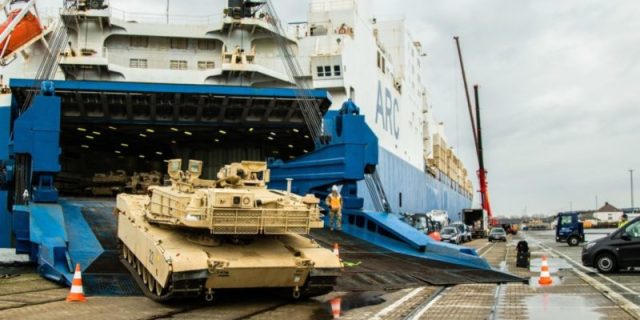Over the past two days, it has become clear that with the coming to power of the Joe Biden administration in the United States, American foreign policy has radically changed. The previous principles of the relative isolationism of the previous American leader, Donald Trump, are thrown aside. This was openly stated by the new President of the United States on February 4 in his first speech on foreign policy issues.
Despite the recent agreement with Russia on the extension of the START-3 treaty, reached between the two nuclear powers in the first days after the inauguration of Biden, a warming in relations between the United States and Russia, apparently, should not be expected. According to the new president, his country is facing Russia's determination to damage American democracy.
"The days when the United States made concessions are over," Biden said, claiming that Russia is taking "aggressive actions" against his country. Therefore, Washington will no longer hesitate in seeking to achieve consequences for those steps on the part of Moscow that the United States considers not in line with its interests.
The first decisions in the military-political plan were made on the eve of yesterday's speech by Joe Biden. On February 3, the US Department of Defense announced the cancellation of Trump's planned withdrawal of the 12-thousandth group of American troops from Germany, after which the Pentagon strategists breathed a sigh of relief – such an event would cost several tens of billions of dollars.
But the most significant anti-Russian step in the military sphere was the statement of the supreme commander of NATO forces in Europe, American General Tod Walters, about increasing the scale of the upcoming exercise "Defender Europe – 2021". On February 3, he announced that the largest maneuvers of the North Atlantic Alliance in 2021 will be held in late spring and early summer on the territory of 12 states from the Baltic States in the north to the Balkan Peninsula in the south. About 31 thousand military personnel from 26 NATO states and partners of the organization will take part in" Defender Europe – 2021".
On the eve of the exercise, a large-scale regrouping of US troops from the continental part of the country to Europe will be carried out. The number of the transferred group is not reported, but it can be assumed that 10-15 thousand military personnel may arrive for the exercise from overseas.
Initially, it was assumed that "Defender Europe-2021 "would have a smaller scale in connection with the planned 2021 exercise" Defender Pacific – 2021 " in the Pacific Ocean. The postponement of the large-scale Pacific exercise to 2022 allowed for an increase in the number of participants in the European Defender maneuvers.
This clearly shows who is now the main enemy for the United States in military terms-Russia or China.
Attention is also drawn to the expansion of the scope of "Defender Europe-2021" in comparison with last year's similar exercise. In addition to the Central European direction in Poland and the Baltic States, the Southern European direction was also added.
On the eastern flank of NATO, as it has been for the past few years, the main strategic task for the alliance, played out during the exercises, remains the solution of the" problem "of the Kaliningrad exclave and the Suwalki corridor, which make it possible to easily "cut off" and surround the Baltic states in the event of a conflict with the Union State of Russia and Belarus.
In the south-east of Europe, according to repeated statements by the NATO leadership, the "militarization of the Crimea occupied by Russia" is becoming an increasing "problem", which"destabilizes the situation in the Black Sea region".
Therefore, it is obvious that by announcing the simultaneous holding of a large-scale exercise "Defender Europe-2021" in two strategic directions, the US and NATO military leaders are pursuing the goal of working out coordinated actions against Russia and Belarus. At the same time, in Central Europe, the troops are likely to play out a plan to "expand" the Suwalki corridor at the expense of the territory of Belarus and the Kaliningrad region. In the south-east – the isolation of Crimea from the rest of Russia.
In any case, such large-scale NATO events in Eastern Europe will not contribute to reducing the tension of the military-political situation in the region and "warming" relations along the "east-West" line. It is possible that the Belarusian and Russian military leaders will be forced to adjust the original plan of the exercise "West-2021" in the direction of a corresponding increase in its scale.
Nikolai Krylov

